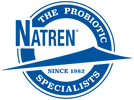“Oh, come on guys. It’s so simple maybe you need a refresher course. It’s all ball bearings nowadays.” This famous line from the classic movie comedy Fletch always gets a laugh, and makes for fun party conversation. But change “ball bearings” to “bacteria” and suddenly you have an insightful truth that many people don’t even know.
It’s All Bacteria Nowadays
Researchers now calculate that more than 10,000 microbial species occupy the human ecosystem. This is known collectively as the gut microbiota, and these organisms not only affect human health, they define it. Our gut microbiota contains tens of trillions (10,000,000,000) of bacteria – ten times more cells than in our body. More than 1,000 different known bacterial species can be found in the human gut microbiota, with approximately 160 species in each human. The composition of an individual’s gut microbiota is unique to them, much like our fingerprints.
High bacterial diversity in the digestive system is a significant health factor, and without a broad range of different bacterial strains, your immune system is unable to function effectively. The body is also unable to effectively extract nutrients from food, and the fabric of the gut is susceptible to attack from destructive pathogens.
So your gut is the battleground, and the battle lines are clearly drawn. It is good bacteria vs. bad bacteria. The key, of course, is to have the good bacteria outweigh the bad. Probiotics can help you win the fight.
Do Probiotics Fight Bad Bacteria?
The answer is yes! Some of the bacteria in our bodies are pathogens that cause ill health and uncomfortable symptoms. Others are beneficial bacteria, known as probiotics, which provide health benefits. Probiotics are living organisms that can boost the immune system, aid digestion, and improve the absorption of food and nutrients. Healthy colonies of diverse probiotic species can outnumber unfriendly bacteria and can even create a physical barrier against unhealthy bacteria.
When people normally think about killing bad bacteria, it is usually in regards to an antibiotic. The problem with an antibiotic is that it not only kills the bad bacteria, but also much of the good bacteria. This is why many people take probiotics while they are on a course of antibiotics. Probiotic food or supplements must be taken two hours after each antibiotic course. While antibiotics can save lives and are sometimes necessary, especially with potentially deadly bacterial infections, they are also vastly overprescribed. People turn to them way too quickly, and regard them as an easy fix-all.
Good Bugs And The Good Fight
The more “good bugs” in your digestive tract the better. Probiotics, also known as the “friendly bacteria,” are essential to good health, and they can help decrease the bad bacteria in your gut that can cause infection or inflammation. Probiotics are often used for treating diarrhea, and can fight off yeast and bacterial infections. They can help with vaginal health for women, and eczema in children. Probiotics are natural and safe for the whole family, including your pets.
While probiotics can be found in certain foods, including yogurt, soy drinks, miso, tempeh, and sauerkraut, supplements assure you are getting the strains specific to your needs, and in the right amounts. Visit Natren.com to learn about their probiotic supplements and products. The battle against bad bacteria can be won.
The post Battling Bad Bacteria appeared first on Natren Probiotics Blog.




0 comments